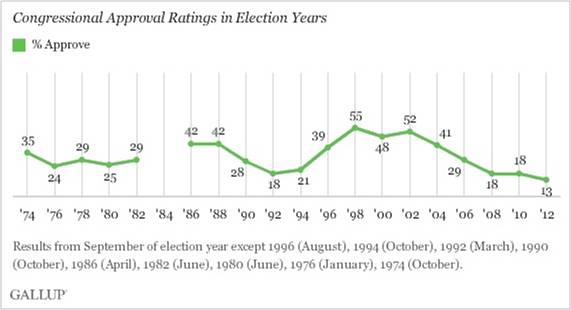Last week I confidently predicted that Mitt Romney would lose the election. Since then, things have only become worse for him, as a video of a fundraiser he spoke at earlier this year surfaced.

In the secretly-recorded video, Romney is heard disparaging those with incomes too low to owe federal income taxes. I don’t want to get into the details of who these people are and how unfair his characterization of them is. The point I want to make is that it is another blow to Romney’s campaign that has hurt his election chances according to polls this week from Gallup and Ipsos/Reuters.
The combined effects of a poor convention, the Libyan gaffe, the secret video and a generally lackluster campaign have taken their toll on Romney. According to RealClearPolitics , Barack Obama is comfortably ahead by a margin that has never been overcome previously. As of yesterday, The New York Times’ Nate Silver had the odds of Obama winning at 75 percent, with a projected 305 electoral votes (only 270 are needed to win) .
Of course, the usual caveats apply – Romney could make a comeback with the vast campaign funds he has at his disposal, Obama could make a big misstep, the debates may alter the election and so on. That said, many Republicans are already preparing for the worst. Just this week, for example, former Minnesota Gov. Tim Pawlenty, who had been co-chairman of the Romney campaign, left to become a lobbyist.
It may be that Pawlenty was simply made an offer too good to turn down. But it could also mean that he is jumping from a sinking ship while there is still time. He may have concluded that his chances of being a cabinet secretary in a Romney administration are too low, and after the election being a Republican in Washington may have diminished value.
It now appears certain that Republican hopes in Congress have diminished along with Romney’s fortunes. Political scientist Larry Sabato is projecting a net Democratic pickup of 4 seats in the House of Representatives. That will still leave Republicans in control, but with a reduced margin that will make it harder for the leadership to keep control. On the other hand, the Princeton Election Consortium http://election.princeton.edu/2012/09/20/house-outlook-for-2013-take-2/ thinks that Democrats have a 74 percent chance of retaking the House based on generic ballot polls.
In the Senate, Democratic chances of keeping control have improved significantly. Their candidates are doing well in states where Republicans thought they had an excellent chance of keeping or gaining seats. These include Virginia, Indiana, Missouri and Wisconsin. It now appears likely that Democrats will stay in control of the Senate.
Republicans have a great deal more downside risk than Democrats at this point. First, Romney could end up dragging down some otherwise electable congressional candidates. Second, at-risk Republican congressional candidates may begin to openly distance themselves from him, as several already have over his video comments, which will drag Romney down further.
But the most important wild card, insofar as Congress is concerned, is the extraordinary unpopularity of the institution. According to Gallup, Congress’s unpopularity in an election year has never been lower. Just 13 percent of Americans approve of the job it’s doing. This is also the most do-nothing Congress in history based on days in session, hearings held, laws passed and so on.

These factors could lead to a throw-the-bums-out attitude that endangers many incumbents now thought to be safe. Since Republicans have more seats to defend in the House, they have more to lose if this attitude becomes widespread.
If Republicans lose the presidential election to someone they thought had almost zero chance of winning when the campaign began, lose net seats in the House and leave Democrats in control of the Senate, there is no possible way they can avoid some sort of internal fight over what went wrong, who is responsible, and what to do about it.
The Club for Growth, a major player in Republican politics that enforces the conservative line on taxes and budget policy, has already said that Romney’s failure is not being conservative enough. This view is widely echoed among right-wing radio talk shows and blogs. This suggests that there will be even more pressure to nominate someone who is not merely “severely conservative,” as Romney calls himself, but someone so conservative there isn’t even a term to describe it yet.
Those that share this view, however, need to seriously ask themselves whether they think that Minnesota Rep. Michele Bachmann, Texas Gov. Rick Perry, businessman Herman Cain, former Pennsylvania Sen. Rick Santorum, or former House Speaker Newt Gingrich would be running better against Obama if one of them had won the GOP nomination. All ran well to the right of Romney and all led the race for the nomination at one point.
I think that is very, very doubtful that any of them would be doing better or even as well as Romney. He was clearly the most electable candidate running this year. Those Republicans who might have been more electable, such as New Jersey Gov. Chris Christie or Indiana Gov. Mitch Daniels, chose not to run because they knew they had no chance in a primary process totally dominated by the GOP’s right-wing fringe.
Some moderate Republicans, such as former George W. Bush speechwriter David Frum, think there will be a civil war in the Republican Party after the election. But similar predictions were made after John McCain lost in 2008 and it didn’t happen. New York Senator Charles Schumer, a Democrat, however, says he has heard serious grumbling among Senate Republicans about their party’s no-compromise attitude that may lead to reforms in that body.






